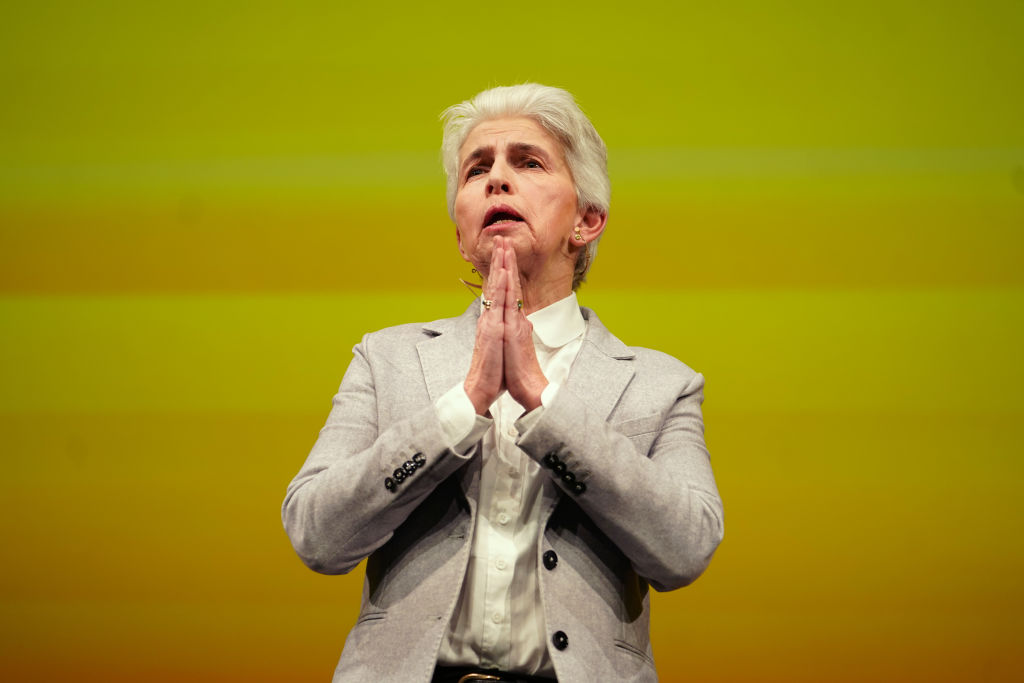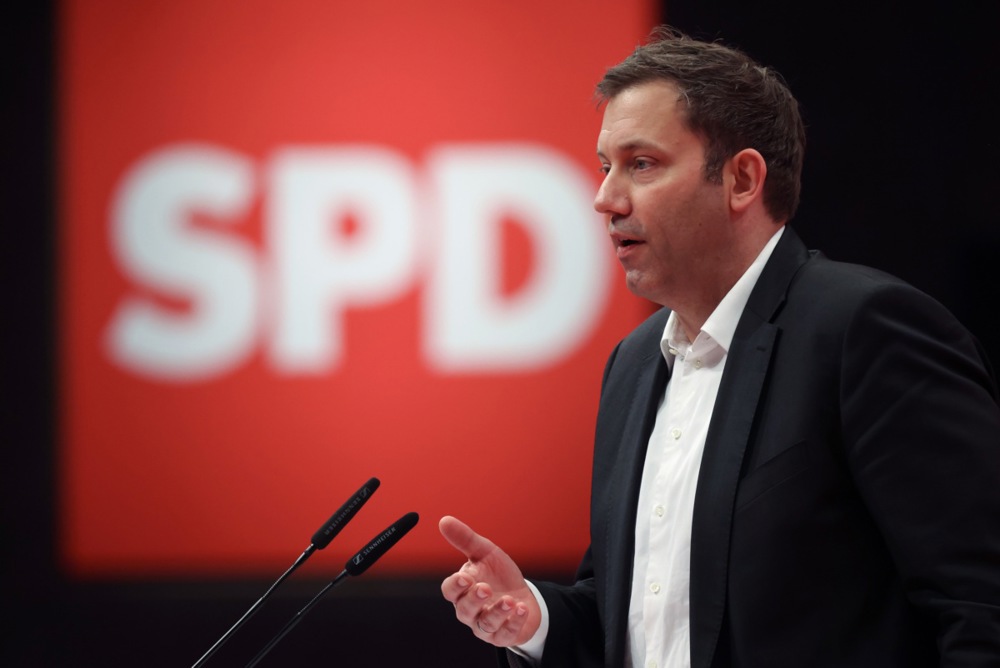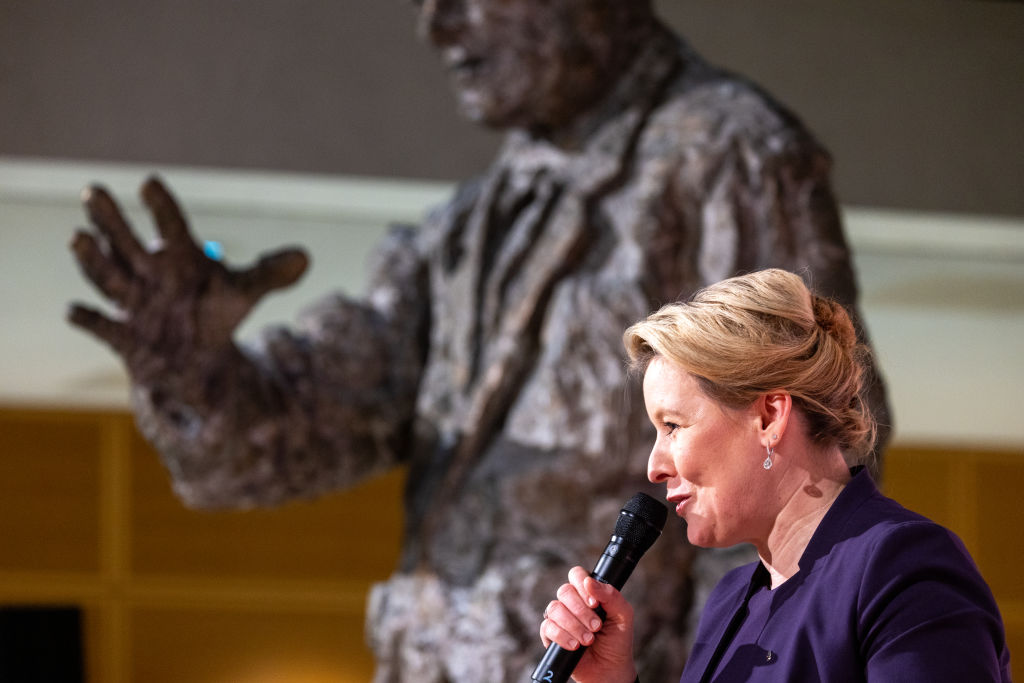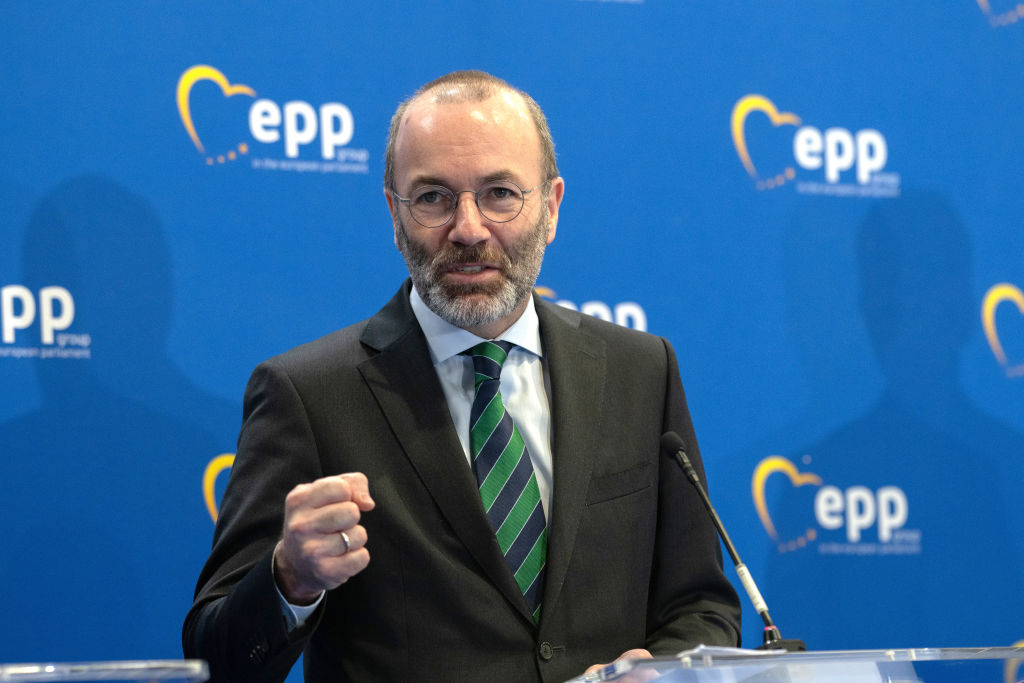Germany’s ruling Social Democratic Party (SPD) is plagued with infighting as a result of losing June’s 6-9 European Parliament elections.
Senior officials within the group have reportedly held several “secretive” meetings in the wake of the vote, which saw it lose to both its rival Christian Democrats, and the hard-right Alternative for Germany (AfD) party.
Politicians within the SPD are now trading accusations over their electoral failure.
Party General Secretary Kevin Kühnert — a major figure in organising the EP election campaign — has outsourced the blame to the SPD’s coalition partners, the Greens and Free Democratic Party (FDP), arguing that his Social Democrats had been rendered unpopular via “contact shame”.
That has angered those within the SPD Chancellor Olaf Scholz government, with the move said to have destabilised relations between him and his coalition partners, with a number of parliamentarians now calling for Kühnert to be reprimanded.
Some have accused the General Secretary of trying to distract from his own “failed campaign” in the run-up to the vote, particularly the strategy of trying to label enemy politicians as national socialists.
Since coming behind the AfD in the EP vote, SPD co-leader Lars Klingbeil has repeatedly denounced the populist group as being “extremist”, claiming that every active member of the party should be considered a “Nazi”.
Such rhetoric is said to have upset numerous politicians within the SPD, who said that the tactic only served to scare away voters, especially in the country’s East.
“The election result says everything about the failed campaign,” Katrin Lange, a senior party member in the State of Brandenburg, remarked.
Another senior Eastern official said that the SPD had alienated so many voters in the East that it may as well forget about the upcoming State elections in the region.
“In Thuringia and Saxony we would be lucky to even get into parliament,” one senior politician anonymously told Bild.
The politician added that many voters had abandoned the party due to their overzealous rhetoric, adding that it “won’t be back anytime soon”.
Everyone actively involved in the populist Alternative for Germany (AfD) party is a “Nazi”, according to Lars Klingbeil, the co-leader of the left-wing German Social Democratic Party (SPD). https://t.co/nUqrupc5pO
— Brussels Signal (@brusselssignal) June 13, 2024
Infighting within the SPD has also spread to its Jusos youth wing.
The faction’s leader, Philipp Türmer, has reportedly put himself at the centre of the internal feud, denouncing calls within the SPD government to increase German deportations of violent migrants.
Türmer is said to have sparked particular outcry with a social media post targeting one of the key supporters of the proposal, which included a middle finger emoji, something many party insiders feel crossed a line.
The Jusos leader has since deleted the post, although has continued to attack the mainline party as drifting to the Right.
He has since insisted that, if the SPD wants to become popular with young people, it should start by “capping rents” and increasing climate change spending and not by discussing immigration.
That is despite recent data showing that the anti-mass migration AfD are now the most popular party among German youth.
An East-West split has been cemented in Germany following the European Parliament elections with former territories of West Germany opting for the centre-right CDU, while East Germans supported the right-wing Alternative for Germany (AfD). https://t.co/yVOXlK5H6V
— Brussels Signal (@brusselssignal) June 10, 2024





